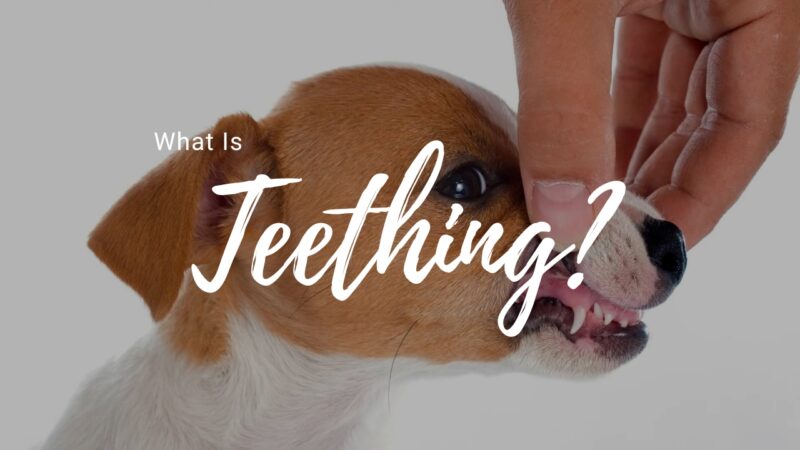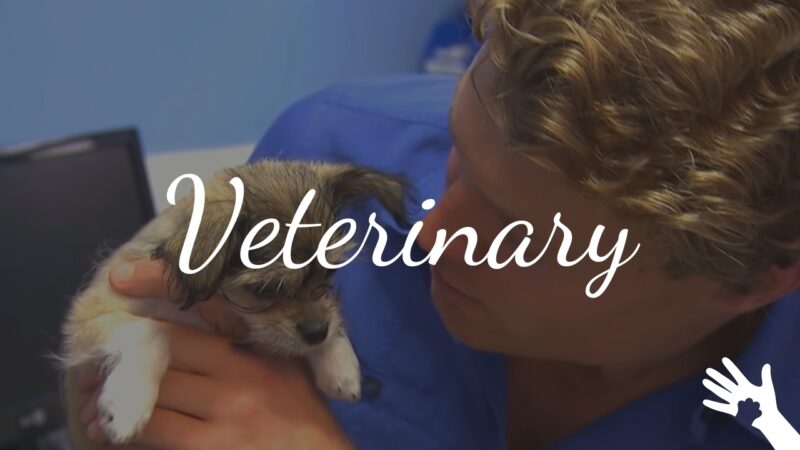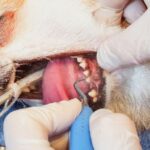As a new puppy owner, you may find yourself navigating a sea of questions about your furry friend’s health and development. We’ve all been there. One common query that often arises is whether teething, a natural part of a puppy’s growth, can cause diarrhea.
Teething is a process that every puppy goes through as they transition from their milk teeth to their adult teeth. It’s a period that can be uncomfortable for your puppy, and it’s often accompanied by a variety of symptoms. One symptom that has been the subject of much debate is diarrhea.
Is it a direct result of this process, or is it caused by other factors? Our goal is to equip you with the knowledge you need to ensure your puppy’s well-being and comfort during their teething phase. We’ll explore the process, common symptoms, and the potential relationship between teething and diarrhea.
The Relationship Between Teething and Diarrhea

The relationship between teething and diarrhea in puppies is a topic of much debate among pet owners and veterinarians. Some believe that teething can cause diarrhea, while others argue that there’s no direct link between the two.
This debate stems from the fact that many puppies experience diarrhea during their teething phase, leading some to conclude that teething is the cause. However, it’s important to remember that correlation does not necessarily imply causation, and other factors could be at play.
Scientific evidence on this topic is limited. Some studies suggest a potential correlation, but they do not establish a direct causal relationship. Other research indicates that while puppies may experience gastrointestinal symptoms during teething, these are likely due to factors associated with teething rather than the teething process itself.
For instance, puppies may chew on inappropriate items to relieve teething discomfort, which could lead to diarrhea. Despite the lack of conclusive evidence, it’s important to monitor your puppy’s health during their teething phase.
If your puppy experiences diarrhea during this period, it’s essential to consider all potential causes and seek veterinary care if necessary.
What Is Teething?

Teething in puppies is a biological process where a puppy’s deciduous (baby) teeth are replaced by their permanent adult teeth. This process is essential for their development, allowing them to transition from a diet of mother’s milk to solid food.
It also plays a crucial role in their socialization, as puppies use their mouths to explore their environment and interact with their peers. This process is a fascinating one, and understanding it can help you better care for your puppy during this critical stage of their life.
The timeline for teething varies among different breeds, but generally, it begins when puppies are around three weeks old, starting with the eruption of their deciduous teeth. By six to eight weeks, all 28 baby teeth should have emerged. The transition to adult teeth begins around three to four months of age and is usually complete by six to seven months.
This timeline can vary slightly depending on the breed and individual puppy, but it provides a general framework of what to expect during your puppy’s teething process. Being familiar with the whole process helps you anticipate the changes your puppy will undergo and prepare for the potential challenges that may arise.
It’s also essential for identifying any abnormalities or complications that may occur during this period, such as retained baby teeth or misaligned adult teeth. That way you can ensure that your puppy transitions smoothly from their baby teeth to their adult teeth.
Common Symptoms
Teething can be an uncomfortable experience for puppies, and they often exhibit a range of symptoms. These can include increased chewing behavior, drooling, loss of appetite, and irritability. You may also notice that your puppy’s gums are red and swollen, and you might even find baby teeth that have fallen out.
These symptoms are your puppy’s way of communicating their discomfort, and while they can be distressing to witness, they are typically a normal part of the teething process. While these symptoms can be concerning, they are typically normal and part of the teething process.
However, it’s important to distinguish between normal teething symptoms and potential health issues. For instance, while a slight decrease in appetite can be expected, a complete refusal to eat is not normal and warrants a visit to the vet.
Similarly, while some puppies may experience mild gum bleeding during the process, excessive or persistent bleeding could indicate a more serious problem. It’s important to remember that each puppy is unique, and their experience with teething can vary.
Some puppies may breeze through the process with minimal discomfort, while others may experience more severe symptoms. As a puppy owner, it’s your job to monitor your puppy’s symptoms and provide them with the care and comfort they need during this challenging time.
Diarrhea in Puppies
Diarrhea in puppies is characterized by loose or liquid stools and can be caused by a variety of factors. These can range from dietary changes and stress to more serious issues like parasites, viral infections, or underlying health conditions.
Diarrhea can be distressing for both you and your puppy, and understanding its potential causes can help you take appropriate action to address it. Diarrhea can pose significant health risks if it persists. It can lead to dehydration, electrolyte imbalances, and weight loss, all of which can be particularly dangerous for young puppies.
Therefore, it’s crucial to monitor your puppy’s bowel movements and seek veterinary care if diarrhea persists or is accompanied by other concerning symptoms. It’s also important to remember that diarrhea can be a symptom of a more serious underlying health issue, so it’s important to take it seriously and seek professional advice if necessary.
Understanding the potential causes and risks associated with diarrhea can help you take appropriate action if your puppy experiences this issue. It can also aid in identifying whether diarrhea is a symptom of teething or a sign of a more serious health problem.
Factors Contributing to Diarrhea in Puppies
Diarrhea in puppies can be attributed to a variety of factors. These can include dietary changes, ingestion of inappropriate items, stress, parasites, viral or bacterial infections, and underlying health conditions. Each of these factors can disrupt your puppy’s digestive system, leading to diarrhea.
Identifying the underlying cause of diarrhea is crucial for effective treatment. For instance, if diarrhea is caused by a dietary change, it may be resolved by gradually introducing the new food over several days. On the other hand, if it’s due to a parasitic infection, your vet may prescribe specific medications to treat the issue.
By identifying the root cause of your puppy’s diarrhea, you can ensure that they receive the most effective treatment and recover as quickly as possible. If your puppy is experiencing diarrhea during their teething phase, it’s important to consider all potential causes and not automatically attribute it to the process.
Potential Reasons for the Correlation

While the scientific evidence is inconclusive, there are several proposed mechanisms for how teething could potentially lead to diarrhea in puppies. One theory is that the discomfort of the process may lead to increased salivation, which, when swallowed, could speed up the transit of food through the digestive tract, resulting in diarrhea.
This theory is based on the observation that many puppies drool excessively during this phase, which could potentially affect their digestive system. Another theory is that our pets tend to chew on various objects to relieve their discomfort, which could lead to the ingestion of harmful bacteria or inappropriate items, both of which could cause diarrhea.
This theory is supported by the fact that many puppies experience diarrhea during their teething phase, despite being otherwise healthy. However, it’s important to note that these are just theories, and more research is needed to confirm these hypotheses.
Regardless of the potential link between teething and diarrhea, it’s crucial to monitor your puppy’s behavior and health during this phase. If your puppy develops diarrhea, it’s essential to consider all possible causes and seek professional advice if necessary.
How to Deal with The Problem?
There are several strategies you can employ to manage this issue. First, ensure your puppy stays hydrated. Diarrhea can lead to dehydration, so it’s important to provide your puppy with plenty of fresh water. This can help replace the fluids lost through diarrhea and prevent dehydration, which can be particularly dangerous for young puppies.
You can also consider feeding your puppy a bland diet, such as boiled chicken and rice, until their diarrhea improves. This can be easier on their digestive system and help firm up their stools. A bland diet can provide your puppy with the nutrients they need without irritating their digestive system, helping them recover from diarrhea more quickly.
Additionally, providing your puppy with safe chew toys can help alleviate their teething discomfort and discourage them from chewing on inappropriate items that could cause diarrhea. Chew toys can provide a safe outlet for your puppy’s chewing urges, reducing the risk of them ingesting harmful objects or substances.
Remember, these strategies are only temporary solutions. If your puppy’s diarrhea persists or if they exhibit other concerning symptoms, it’s crucial to seek veterinary care. Your vet can provide a thorough examination and recommend the best course of treatment for your puppy.
When to Seek Veterinary Attention?

While mild diarrhea can often be managed at home, there are certain red flags that indicate a need for professional veterinary care. These include persistent diarrhea, blood in the stool, vomiting, loss of appetite, lethargy, or signs of pain or distress. If your puppy exhibits any of these symptoms, it’s important to seek veterinary care immediately.
These symptoms could indicate a more serious underlying health issue that requires professional attention. It’s also important to monitor your puppy’s overall health and well-being during their teething phase.
If your puppy seems unusually uncomfortable, is refusing to eat, or is exhibiting any other concerning symptoms, it’s always a good idea to consult with a vet. Your vet is your best resource when it comes to your puppy’s health. They can provide you with accurate information, diagnose any potential health issues, and guide you on the best course of action.
Preventive Measures
Promoting good oral health during the teething process can help prevent potential complications, including diarrhea. One way to do this is by providing your puppy with safe, appropriate chew toys. These can help alleviate discomfort and discourage your puppy from chewing on inappropriate items that could lead to diarrhea.
Chew toys can provide a safe outlet for your puppy’s chewing urges, reducing the risk of them ingesting harmful objects or substances. Proper care and hygiene practices are also crucial during this phase. Regularly clean your puppy’s toys and sleeping area to minimize the risk of bacterial infections.
Additionally, monitor your puppy’s diet and ensure they’re not eating anything that could upset their stomach. Remember, prevention is always better than cure. By taking these preventive measures, you can help ensure your puppy’s teething phase is as comfortable and problem-free as possible.
And by preventing potential health issues, you can ensure that your puppy stays healthy and happy during this time.
Other Potential Causes

While teething is one potential cause of diarrhea in puppies, it’s important to consider other potential causes as well. These can include dietary changes, ingestion of inappropriate items, stress, parasites, viral or bacterial infections, and underlying health conditions.
Each of these factors can disrupt your puppy’s digestive system and lead to diarrhea, so it’s important to consider all potential causes if your puppy develops diarrhea. Differentiating teething-related diarrhea from diarrhea caused by other factors is crucial for ensuring your puppy receives appropriate care.
For instance, if your puppy has diarrhea and is also vomiting, lethargic, or refusing to eat, these symptoms could indicate a more serious health issue that requires immediate veterinary attention.
FAQs
Can This Be Prevented with Probiotics?
Probiotics may support digestive health in puppies, but their role in preventing teething-related diarrhea specifically is not well-established. Consult a vet for guidance.
Are There Any Specific Breeds More Prone to This Symptom?
Teething-related diarrhea can affect puppies of any breed. However, individual susceptibility may vary based on factors such as genetics and overall health.
Can Teething Affect a Puppy’s Behavior?
It can cause temporary changes in behavior, such as increased chewing and irritability. However, it should not significantly impact overall temperament.
Are There Any Specific Oral Hygiene Practices I Should Follow During This Phase?
Regularly brushing your puppy’s teeth with a dog-safe toothbrush and toothpaste, as recommended by your vet, can help maintain good oral health.
Can This Phase Cause Blood in A Dog’s Stool?
Blood in the stool is not a common symptom of teething. If you observe blood, it is essential to seek immediate veterinary attention.
Conclusion

Teething is a natural part of your puppy’s development, and while it can be uncomfortable, it’s also a temporary phase. With proper care and attention, you can help ensure your pet’s teething process is as smooth and comfortable as possible.
While scientific evidence on this topic is limited, it’s important to monitor your puppy’s health and behavior during this period and seek veterinary care if necessary. Whether teething causes diarrhea in puppies or not, the key takeaway is that as a responsible pet owner, you should always be vigilant about your puppy’s health.
After all, a healthy puppy is a happy puppy, and as a puppy owner, your ultimate goal is to ensure that your puppy stays healthy and happy throughout their life.
The early stages of puppyhood can be challenging, and many new owners wonder about the ideal diet for their young canine companion. If you want to strike the perfect balance and ensure a healthy smile and happy tummy, it’s essential to understand how much food to give an 8-week old puppy.







